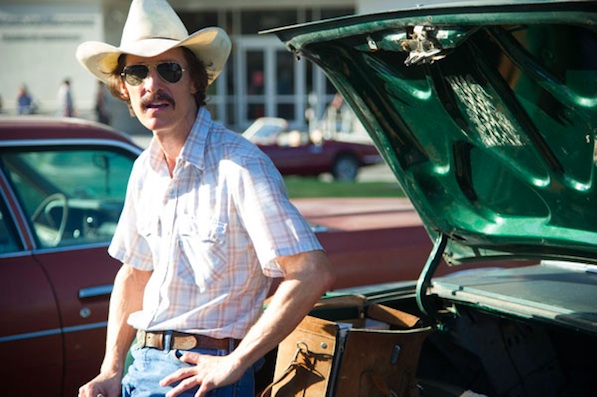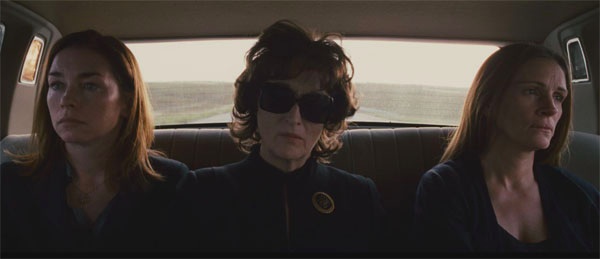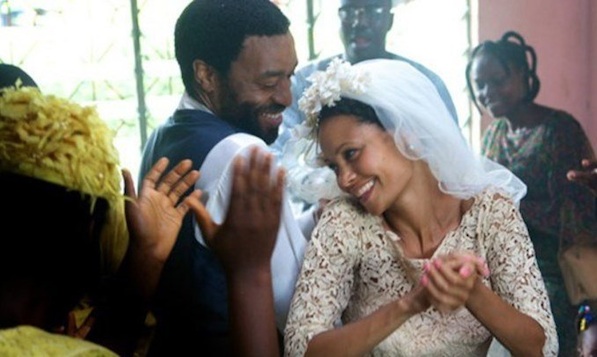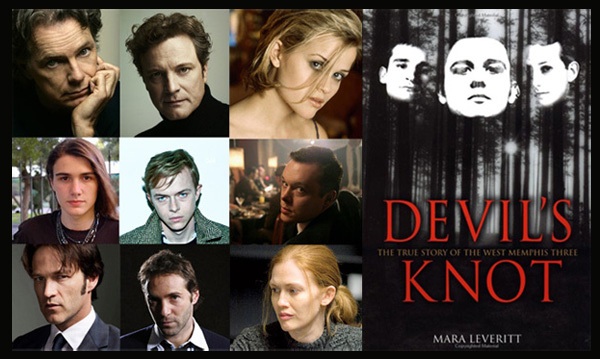The Toronto International Film Festival (TIFF) is a maze for every journalist hoping to watch as many and varied films as possible. The Press & Industry screening schedule seems to be programmed for distributors’, as opposed to writers’, needs. The focus here is selling, not discussing. But the complaining itself is a form of discussion and for critics, that tradition, like the appetizer before the proper meal, binds us. Luckily, this year’s TIFF is paying us back for its slightly hostile scheduling with some spectacular premieres, as well as films that are good, valuable, memorable and sometimes even breathtaking. This is indeed a festival that is not to be forgotten.
Half-way through the fest as I write, the most anticipated screenings have, thus far, met my expectations. Jean-Marc Vallée’s Dallas Buyers Club has been publicized for months, mostly due to Matthew McConaughey’s and Jared Leto’s dramatic weight loss for their parts. It was a loss well worth it, as such famished body images come with heavy connotations. Canadian director Vallée had amazed international audiences with his Café de flore; here the narrative is more linear and conventional, but it works for the story and nicely compliments the inspired but not overtly experimental cinematography.
Another made-in-Canada artist, Denis Villeneuve, came to Toronto with two projects, both starring Jake Gyllenhaal, with whom the director apparently artistically bonded. Especially in slightly more-talked-about Prisoners, one can grasp Gyllenhaal’s process of maturation. The once pretty boy is now an interesting, wisely choosing, inspired actor. After his highly acclaimed performance in End of Watch, he again takes the role of a policeman, creating immersive onscreen dynamics with Hugh Jackman, who might just have played the best part in his career so far. Prisoners does not revolutionize the form (building off film noir and thriller), but fills the genre formats with new, suspenseful and emotionally involving content.
Tracy Letts’ August: Osage County won a Pulitzer and John Wells’ film based on the* play will probably bring him—and a few fellow co-creators—an Oscar. The film is brilliant, deeply touching and hysterically funny in a truly bipolar fashion, inspired by the main character, a nutty pill-popper and nightmare matriarch, Violet Weston. The Academy might have an issue on its hands, because it’s already awarded Meryl Streep for Iron Lady and here she is, only two years later, with a role that rises above the other performance. In addition, Julia Roberts as her daughter Barbara has not been that electric on screen for a very long time—it’s like Streep’s charisma was contagious and made her act for her life. Those two are the leads, but there are several other unforgettable characters in Wells’ bitterly melancholic and beautifully staged, scripted and shot portrayal of the worst of human addictions: family life.
Quite a few actors came to Toronto with not just one, but two films. Among them: Benedict Cumberbatch, Jesse Eisenberg, Clive Owen and Colin Firth. But it is Chiwetel Ejiofor who’s becoming this year’s hottest name. Leading man of Steve McQueen’s eagerly anticipated 12 Years a Slave, he stars also in Half of a Yellow Sun, a reality-based drama set during the Biafra War in Nigeria in the late sixties. Ejiofor is British of Nigerian descent, so he’s able to find a personal link with both of the stories. Bandele’s film is a rather conventional historical drama, while McQueen’s, less experimental than his previous work, is far from falling into a genre trap. 12 Years is, like Hunger and Shame, a deeply personal story of one man’s struggle told from a very distinct point of view, using highly sophisticated, picturesque imagery and powerful, monotone music that drills into one’s mind and makes the absorption of the film more effective, immediate and overwhelming. Some claim that McQueen has lost his mojo, because this latest is closer to classical storytelling and operates with an emotional intensity that mainstream cinema happily imposes on the viewer to evoke a concrete psychic response. But I’m convinced the director is neither trying to manipulate us into any kind of a particular emotional zone, nor do these emotional peaks record anywhere close to the region of pathos. For anyone with a sense of compassion, a beating heart and an eye for Sean Bobbitt’s incredibly lit, framed and registered portraits of onscreen reality, McQueen’s film will be one of those deeply spiritual experiences that stay under the skin for more than one night.
The biggest disappointments so far are both films that could have been great considering the subject matter, yet are falling flat and join the church of blah-ness. Straight from the Twilight Saga finale, Bill Condon maintains a similar level of artistry in Fifth Estate. Julian Assange’s story is just a boringly humming waterfall of facts and dates, not framed with any attempt context or interpretive zeal. Benedict Cumberbatch has a great white wig, Daniel Brühl is suggestive in his nervousness, but nothing can help this completely bland production. Assange, one of the most characteristic faces of the Internet revolution, got a film that makes Jobs look like an experimental work of art. Also Atom Egoyan Devil’s Knot didn’t do justice to the case of the West Memphis Three. There have been many successful documentaries, with Amy Berg’s outstanding West of Memphis emerging just last year, but Egoyan’s is the first feature-style film to touch upon this awful case that exposed weaknesses in the U.S. judicial system. The problem is, there is nothing new in the film, no new insight, no new perspective, no attempt at reinterpretation. Watching the visually completely transparent film that bears a resemblance to a cheap TV drama, one keeps on asking oneself: “What for?”
But with five more days to go and still too-many-to-count films to see, this years’ TIFF remains an open book. I do hope the next chapters will be a fascinating read.
*Item corrected. See comment below.








